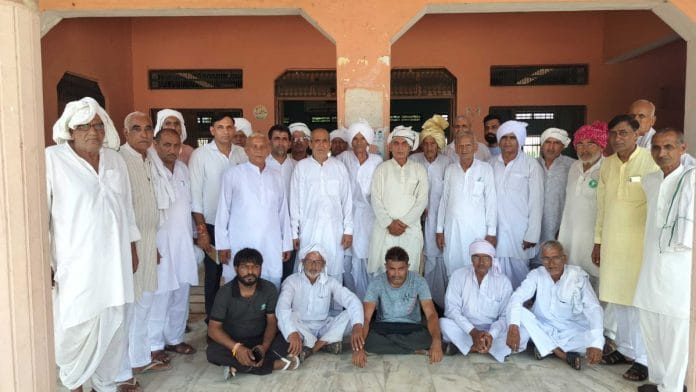Bhiwani/Hisar: In a newly-built dharamshala at Haryana’s Dhanana village, members of Jaat Khap 84 drink chai, smoke beedis and pull on hookahs while fiercely debating the agenda of the day: felicitating wrestler Vinesh Phogat.
Phogat has been wronged is the dominant sentiment. Not just at the Paris Olympics but there is also an awkward sense of collective guilt toward her here across Haryana.
“The khaps failed the wrestlers. Yes, we’re talking about felicitating her (Phogat) now, but we failed to properly support our daughters when they were protesting in Delhi. We should have all gone there, but we were stuck conducting meetings after meetings!” a khap member stood up and roared.
His accusation didn’t sit well with some of the members. A few rumbled back in anger. As tensions rose, the pradhan of Jaat Khap 84, Bhim Singh, tried to calm everyone down.
“We’ve done all we could. We are now contributing to the all-khap meeting to present her with a gold medal. Please sit down,” he said.
Phogat, who was at the forefront of the protests against former Wrestling Federation of India (WFI) chief Brij Bhushan Sharan Singh who is accused of sexually abusing wrestlers, saw her Paris Olympic dream come to an abrupt halt. She failed to meet the 50 kg weight requirement by just 100 gm and lost out on the opportunity of a shot at gold. What’s more, the rules disqualified her altogether and she was pushed to the bottom of the table, her appeal for a silver also denied by the Court of Arbitration for Sport. Now, khaps all over Haryana are falling over themselves trying to right these wrongs. They are busy conducting meetings before she is presented with a gold medal on 25 August at a mahapanchayat in Rohtak. Everyone is devising their own strategies on how to stand out from the other khaps in honouring Phogat.
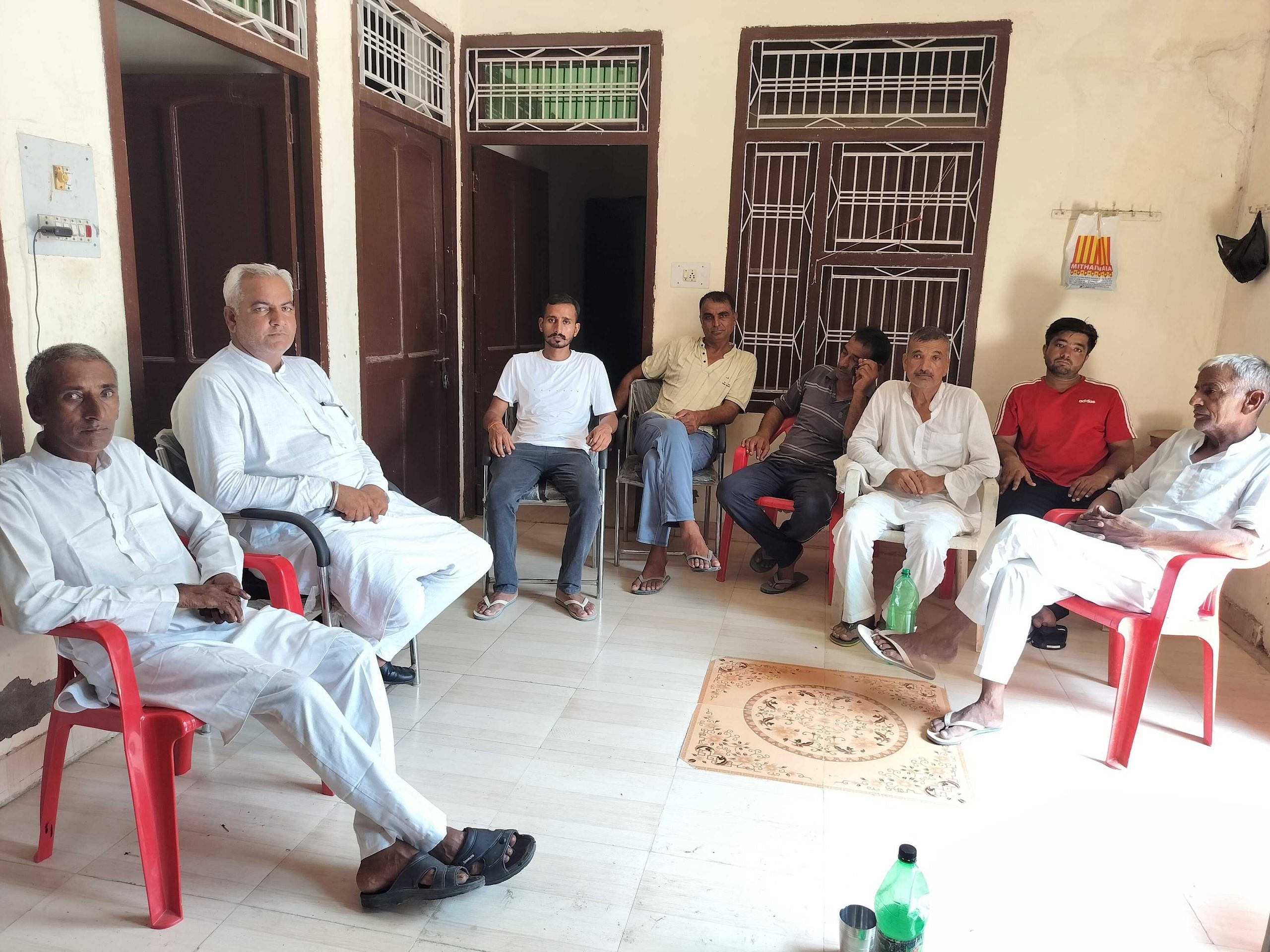
Feminism or caste pride?
Even a decade ago, it would have been impossible to think of khaps discussing the success of a woman in Haryana, let alone celebrate it and derive pride from it. Khaps only came into the national conversation in the context of honour killings. They objected to young women eating instant noodles, wearing jeans, going to college, and talking on cell phones.
“Sports give discipline. Wearing less clothes in sports is fine because it is necessary. But women from villages go to college to study and roam around. That is not good,” said a khap member
Khaps are community courts led by and comprised exclusively of men who act like the moral police of their community. They were the embodiment and perpetrators of Haryana’s regressive thought in popular imagination. The khaps had even told the Supreme Court that honour killings happen in peace-loving villages. Their regressive practices especially hit headlines in 2010s when khaps sought to ban jeans and mobile phone usage of women. Khaps were in focus for their dictates that included asking a married couple to live like siblings, and would often parade people naked as punishment. But their political influence stopped parties short of denouncing them. Then newly-formed Aam Aadmi Party also advocated for the Khaps, adding that they denounced killings.
But since sportswomen from Haryana started winning medals at international meets, bringing glory and honour to their communities and villages, khaps have become increasingly encouraging of women seeking excellence in sports. This seal of approval was further cemented when Sakshee Malik bagged a bronze medal at the 2016 Rio Olympics and proudly waved the national flag in the far-far lands of Brazil. Following her victory, the all-male akhada (wrestling school) in Sakshee Malik’s village also opened its doors to female students.
Women in Haryana are not given a seat at the high table. But there is now an exception to this. It takes a gold for things to change, or at least a shot at it. By winning an international medal, which improves the economic and social status of their families in the villages, they get to sit next to men. They are felicitated with turbans and cash rewards, their posters and photographs are put on the walls of common spaces such as dharamshalas – and khaps take the lead in organising such programmes. The sportswomen are almost always surrounded by fathers of young children hanging on to their every word. International accolades are the access card into this male bastion.
“I was pleasantly surprised when many families came to me and requested me to open a boxing academy here. They want me to train the future generations!” Neetu Ghanghas, a Commonwealth champion boxer from Dhanana village said.
But this hard-won freedom is limited to sports.
“Sports give discipline. Wearing less clothes in sports is fine because it is necessary. But women from villages go to college to study and roam around. That is not good,” Kuldeep Mallik, a 26-year-old khap member and farmer in Dhanderi village said. “With sports, women can start winning medals at a young age and the potential is limitless. But education doesn’t give so many benefits.”
The khaps threw their weight behind Phogat, Malik and the wrestlers at the peak of the protests against Brij Bhushan in New Delhi last year. Members slept on the roads of Jantar Mantar in May under the night sky, in support of what was seen as a ‘feminist’ cause. When the wrestlers were dragged through concrete roads during those protests on 28 May last year, Khaps all over Haryana and Uttar Pradesh organised mahapanchayats to discuss how to take the protest forward. When the wrestlers went to Haridwar to immerse their medals in the Ganga, khap leaders intervened and held mahapanchayats across Haryana and Uttar Pradesh. They threatened to block Delhi’s roads and mount a protest like the farmers’ agitation. But after dialogue with the government, the khaps and farmer leaders didn’t go forward with it.
“That would be foolish. The support of khaps to the wrestlers’ protest wasn’t feminist in nature. It was about caste pride,” a former khap member
Sunil Jaglan, a former khap leader and now a women’s rights activist in Haryana, cautions against misinterpreting these interventions as a sign of women’s rights and equality finally getting a platform in the all-male khap meetings.
“That would be foolish. The support of khaps to the wrestlers’ protest wasn’t feminist in nature. It was about caste pride,” Jaglan told ThePrint in Hisar’s Dhandheri village where he was conducting a menopause awareness campaign. As a khap leader, he had proposed to include women in the meetings, but his peers refused to entertain such a thought.
“Their attitude still hasn’t changed. Honour killings in Haryana’s khap belts continue to be extremely high,” he added. If women’s freedom comes wearing wrestling and boxing clothes, Haryana’s khaps will roll out the red carpet.
Also read: Khaps ask Haryana CM to ban live-ins, amend law to restrict marriages in same ‘gaon, guvandh, gotra’
Sports and women
At the khap meeting in Dhanana’s newly-built dharamshala, a poster of Ghanghas and Malik ‘Dhanana’ showing off their boxing medals is displayed prominently. “These girls are the pride of Dhanana,” said Bhim Singh. He talks enthusiastically about 50 girls from Dhanana and neighbouring villages that come to the village every day to practise handball.
“We really want our girls to succeed, and we help them in any way we can,” Master Raj Singh, general secretary of the khap, said.
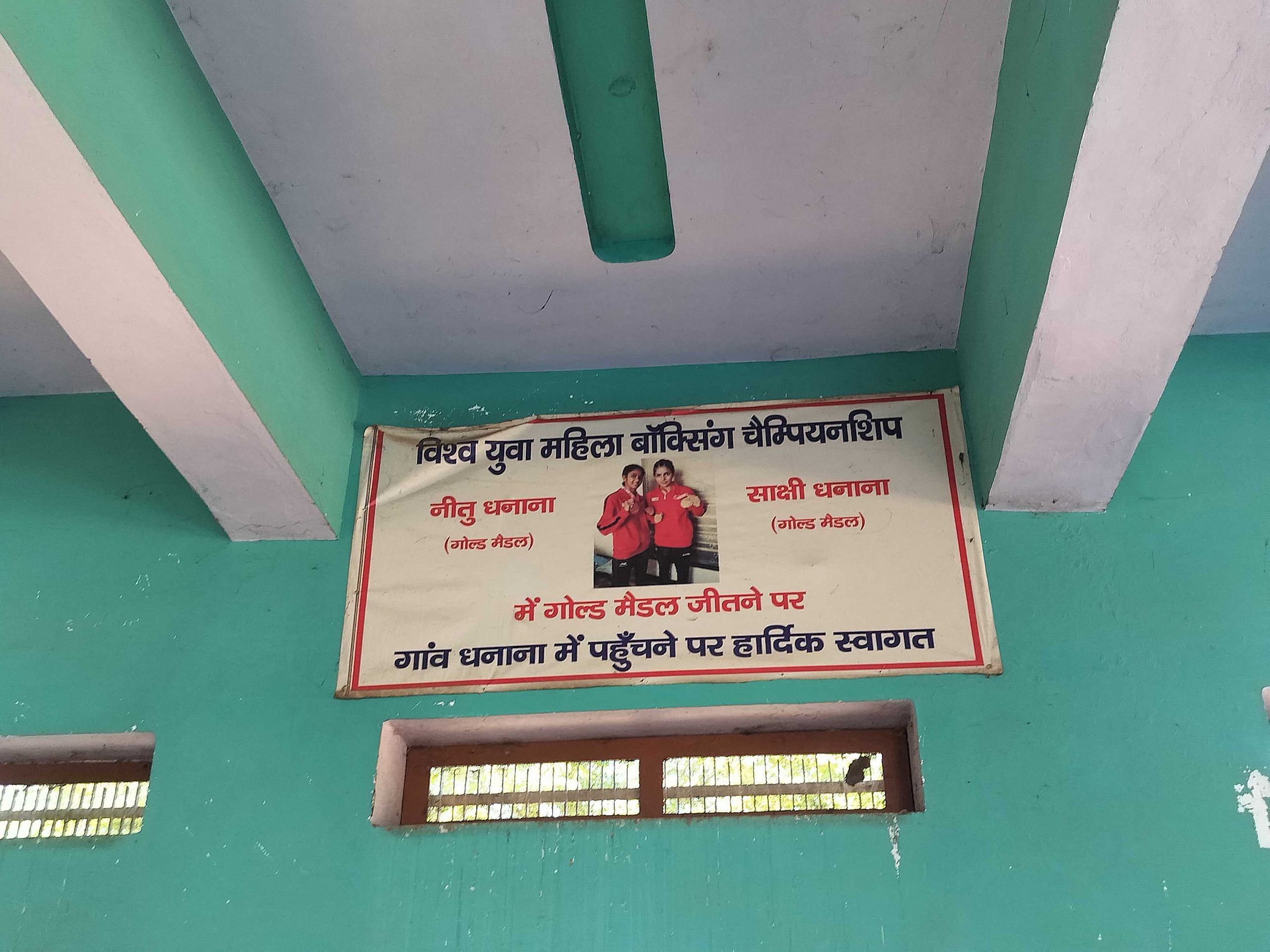
“Soon, girls from our khap will be playing at the Olympics,” he said, his eyes shining at the mere idea of his village getting a shot at the Olympic Games.
The khap also gave Rs 2.5 lakh each to their boxing champions when they returned home, and a roadshow was organised by them in the village to celebrate their achievements.
The handball players have two coaches and have won state and national level competitions. Khap leaders proudly say that they provide financial assistance, ghee and milk to families of women who are good at sport but are economically weak.
“We really want our girls to succeed, and we help them in any way we can,” Master Raj Singh, general secretary of the khap, said.
About five kilometres from this dharamshala, Neetu Ghanghas, world champion in light flyweight amateur boxing, helps her mother with the day’s chores in a newly built palatial house. An entire room is dedicated to Ghanghas’ exercise equipment. Painted white with marble floors, their new two-storey house is a symbol of her success. She and her family moved out of their small house to buy the first plot right at the entrance of the village. Her younger brother is also training to become an ace shooter, while her sister is studying MBBS at a college in Punjab.
“It was very difficult for me before I won a medal. People in the village used to tell my parents that they were wasting their time on me and my training,” said Neetu Ghanghas.
Traditions are always strictly followed at home. Her mother follows purdah and doesn’t speak in front of elders and men in the house. But Ghanghas’ success has ‘earned’ her the right to pull up a chair in the drawing room and participate in conversations.
“It was very difficult for me before I won a medal. People in the village used to tell my parents that they were wasting their time on me and my training, and shouldn’t send me out of the village like this. But after winning the medal things have changed,” said Ghanghas.
It’s another example of how Khap members view sport as a legitimate means for women to gain freedom and agency, even as they look down upon ‘Padhi-likhi ladkiyan’ (educated women).
Sexual harassment and women’s freedom
Most families view education with suspicion–a slippery slope that encourages women to make their own decisions in life from choice of partners, clothes, to careers.
The fate of Tejbir Singh and Meena and other men and women who defied tradition is a warning. In April 2024, Tejbir and Meena from Hisar eloped from their villages to be together. But the couple was killed for ‘honour’ at a park in Hansi town of Hisar district.
This was the third case of honour killing reported from Haryana within a year. Meena came from Sultanpur, where the Saat Baas Khap reigns supreme. Sitting at his home, an ageing Balwaan Singh, the pradhaan of the khap, said such killings are justified. He’s unhappy that five more couples are suspected to have eloped from his village. It’s a stain on Sultanpur’s reputation. As far as Singh is concerned, women’s rights mean the various ways a woman should be policed.
“They (the government) shouldn’t let same-gotra marriage happen. But if they happen, then we’ll have to resort to honour killings to save our community,” Sandeep Mallik, another young khap member said.
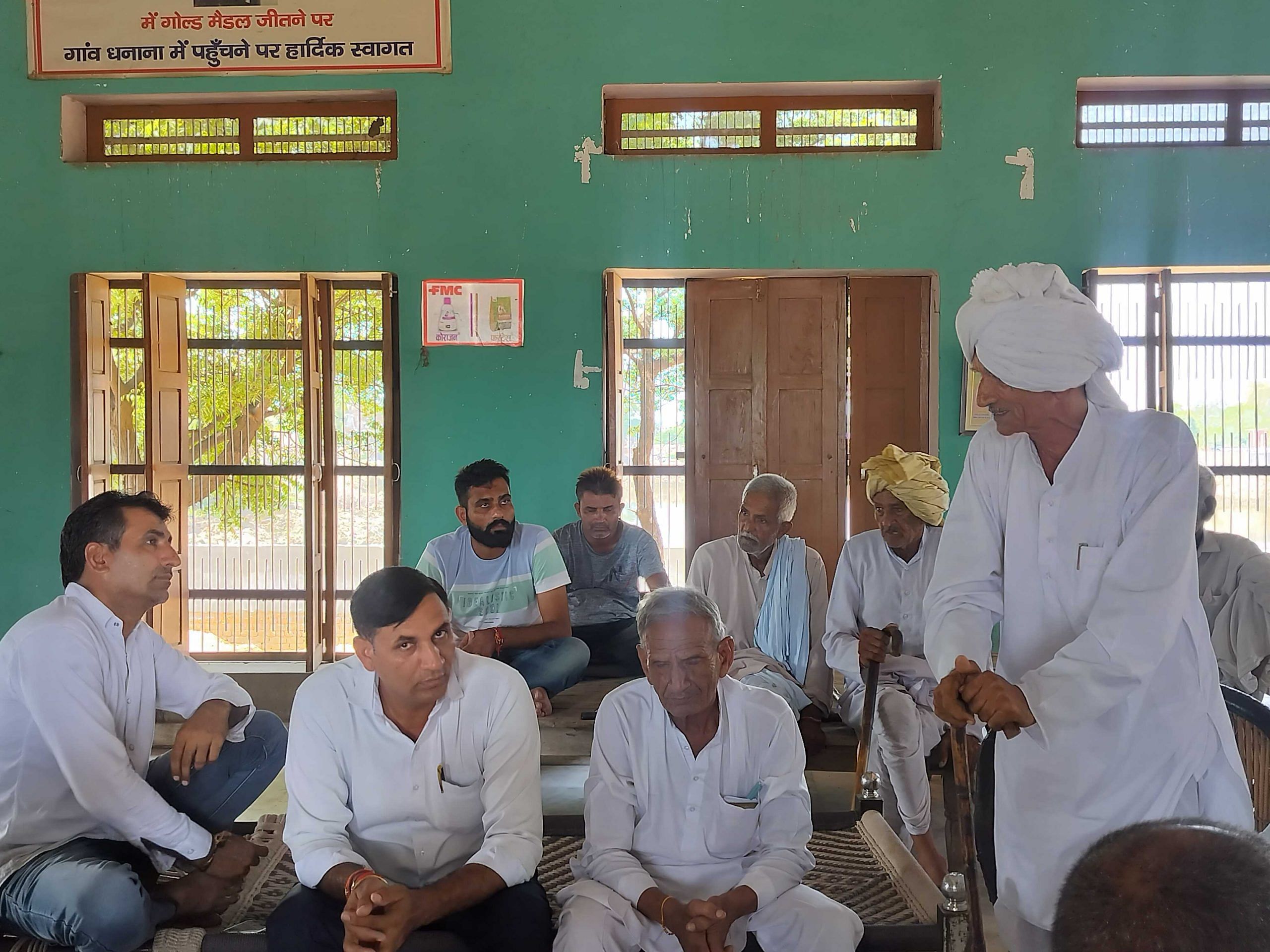
“We held a huge panchayat in Dharodha village recently to debate women’s rights. We resolved against live-in relationships, love marriage without parents’ permission, and sex before marriage. Khaps’ main motive is to get rid of social evil,” he said.
The wrestlers’ fight against Brij Bhushan is an altogether different issue.
“As long as Brij Bhushan is not convicted for his crimes against women, we will not rest,” Singh said. He may not view women as his equals, but he stands with the wrestlers because they are Haryana’s success stories. And Sakshi Malik belongs to the same caste as him. He hasn’t given much thought to sexual harassment and abuse outside of sports.
Like many men in Haryana, he’s convinced that it’s the woman who invites sexual abuse. If a woman isn’t ‘inviting’ and tries to put a stop to any advances by a man, harassment or other heinous crimes cannot take place, multiple men across ages from two different khaps said.
“They didn’t let women participate in the wrestlers’ protests. By alienating us, they showed that their protest was simply a facade and that they don’t have women’s best interests at heart. Khaps are anti-women and their participation was purely political,” said Soniya, a 21-year-old college student from Hisar.
She’s still waiting for khaps to involve women in politics, to invite them to take on leadership positions within the community. More often than not, women are kept away from general panchayat meetings, let alone khaps.
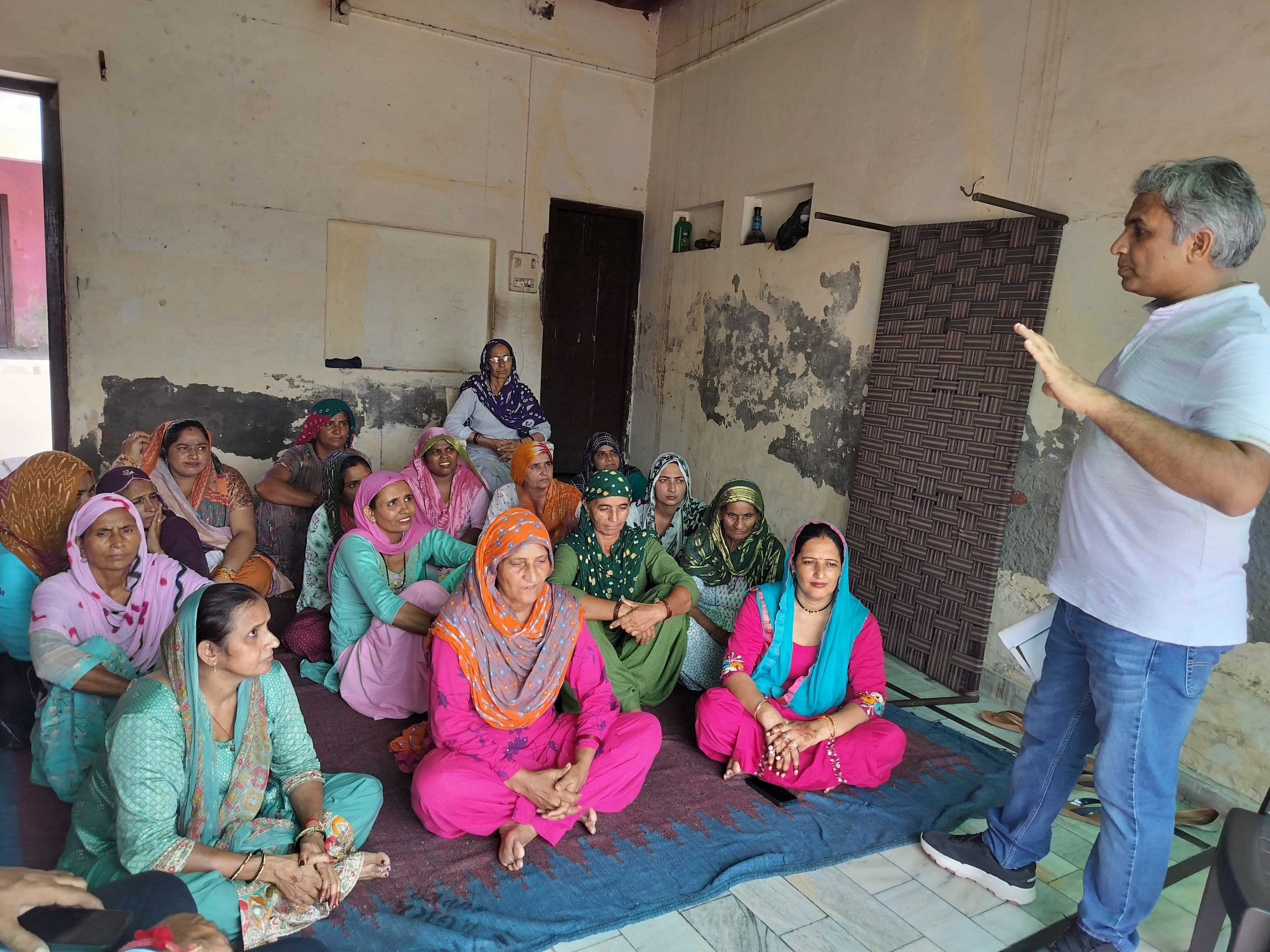
“They only call us to sign our attendance in the register. Even if they are discussing women’s issues we are not consulted,” said Seema, an Asha worker in Dhanderi village.
For both Saat Baas Khap and 84 Jaat Khap, issues related to ‘women’s rights’ are about love marriage, women marrying late and not marrying within the same gotra.
“They (the government) shouldn’t let same-gotra marriage happen. But if they happen, then we’ll have to resort to honour killings to save our community,” Sandeep Mallik, another young khap member said, while lamenting how khaps have been defanged by the government.
In this tide of masculine pride, there is a rare exception. A handful of khap leaders have taken baby steps by initiating sensitisation campaigns in the villages.
“Although we didn’t discuss the issue of harassment in khaps, I did ensure that we all talk to our young boys and tell them that women in their community are like their sisters, and any untoward behaviour toward them will not be tolerated. I have also spoken to parents to ensure that they monitor the kind of content boys consume on social media,” Mallik added.
For the most part, it’s women who have taken the lead in addressing the ubiquitous problem of sexual violence in their lives. The wrestlers’ protest has also galvanised younger women to initiate discussion with their male family members and friends.
Soniya sat her brother and his friends down to educate them about consent. She spoke to them about how important it is to believe women—all women, not just wrestlers with medals—when they speak up against harassment and abuse. Nisha Gadwal, a kabaddi player, said after the protests her parents have also become aware of the challenges women can face in sports.
“They didn’t know such exploitation in sports happens. Now they’re much more aware, so at the society, micro level changes because of the protests have definitely started happening,” Gadwal said. Other women nodded along with her.
“If a woman complains about facing sexual harassment or assault, she’ll be heard now,” said Seema.
(Edited by Ratan Priya)



